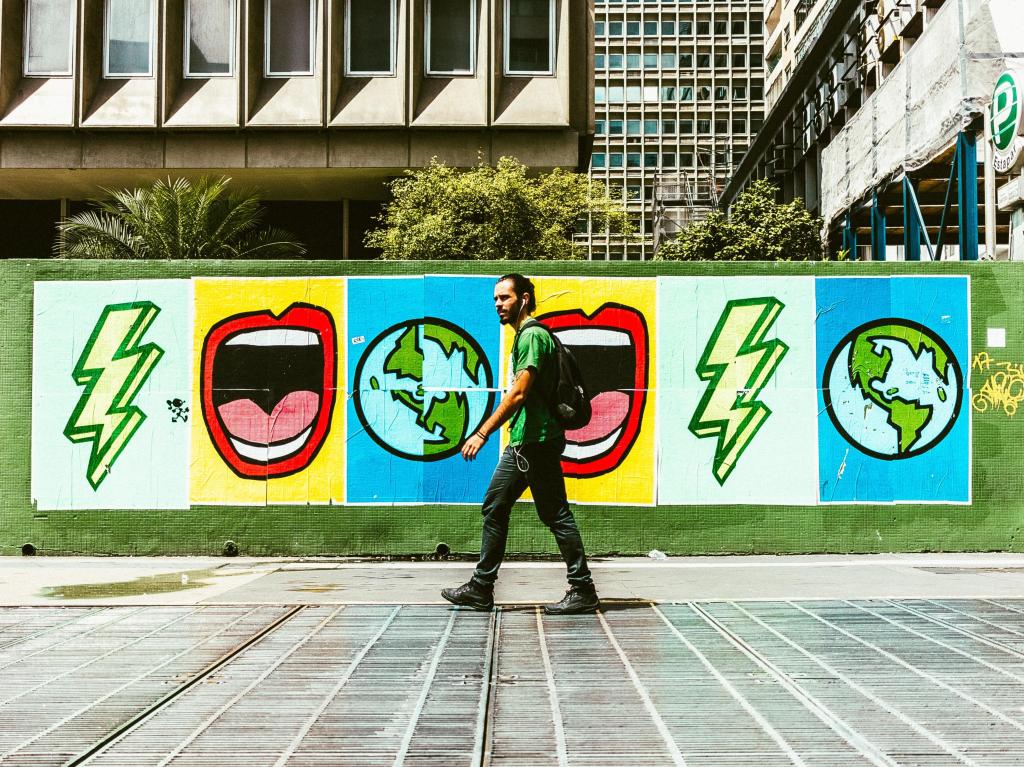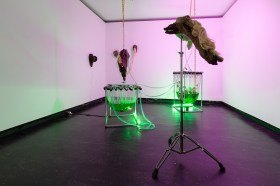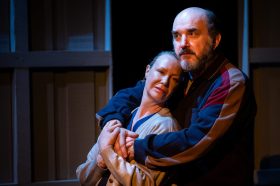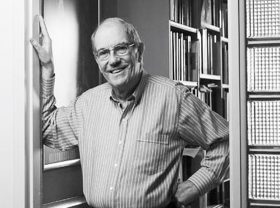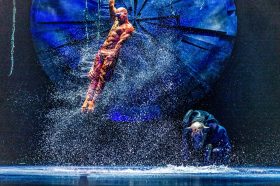Photo by Talles Alves on Unsplash.
Experimenter, game changer, renegade – creatives and artists have long been at the forefront of change, driving innovation through imagination and challenging the status quo.
But it’s not just about artists changing the world. That ability to push boundaries and create anew is also one of the things that makes the arts an interesting place to work, and while the sector often instigates social change, structural changes within the arts is also driven by leaders who encourage us to think differently about what we do.
With this in mind, Creative Victoria presents the annual Creative State Summit, a forum where creatives across all fields come together to share their experiences and learn from each other.
‘The 2018 Summit is a direct call for Victorian creatives to step up, be heard and make an impact,’ said Minister for Creative Industries, Martin Foley.
In 2018 the two day event lands at Melbourne Museum in June and will explore the theme of ‘creativity in a post truth world’ to discuss the role artists play in influencing, reflecting and interpreting our times.
In the lead up, we talk with four speakers to get their take on the theme and ask where they want to see change in the arts.
Changing a city by changing the narrative
When Aaron Foley accepted the newly created role of Chief Storyteller for the City of Detroit, the first government role of its kind in the United States, he had no benchmark to measure against. The role is charged with changing the narrative of the city by bringing to light stories and issues often ignored by traditional media. Leading a team of journalists, Aaron manages a news and storytelling website and a cable TV channel that is working to change his city, one story at a time.
‘I’m looking at ways of making the City of Detroit a supportive partner to our culture creators, our entrepreneurs, our clergy, our kids and anyone else by giving them a platform where they matter and where they can be seen,’ he said.
‘There are certainly things in Detroit that I alone could never change. The work we’re doing is flourishing the narrative of Detroit – getting to what’s “in between” the dominant narrative people know (the negative – crime, poverty) and the burgeoning narrative we’re seeing now (all positive – business development).’
At the Creative State Summit, Foley will discuss how government can play a greater role in shaping a city’s narrative. ‘While governments should be taking care of the necessary basic services, they can also have a role in how its own residents not only see their city, but also see themselves,’ he said.
‘I consider it a public service to strengthen our city’s identity and what it means – on a cultural, maybe sometimes spiritual level – for Detroiters living here. Storytelling can give voice, it can give identity, it can make one feel seen, it can expose people to new opportunities. And I hope it can make us all love our surroundings a little bit more.’
The best work is when the technology disappears
As the slippery subject of truth is inherently tied to questions surrounding the quality and relevance of today’s digital culture, it’s fortunate that Tea Uglow will also speak at Summit.
Uglow is the Creative Director of Google’s Creative Lab and leads a team of creatives who collaborate with museums and artists to develop new intersections between technology and traditional artistic practice. Uglow will speak about how technology can interact with, and bring truth to, artforms such as theatre and literature in new and relevant ways.
Uglow wants to move the focus away from technology as an object (that a thing is digital) to recognition of how technology shapes our habits day to day.
‘You need to consider how technology can augment,’ Uglow explained, referring to the way technology is engrained in our everyday lives to the point that it is often invisible or automatic — from the pencil we write with to the phone in our hand.
‘We already augment everything in our lives with forms of technology that are so commonplace we don’t even think of them anymore,’ Uglow said.
‘We have a very funny attitude towards technology because it’s novel but actually, in the best work that is coming out, the technology disappears and you don’t really see it,’ she added.
When new technologies are introduced, a lot of change and experimentation typically follows. But Uglow believes we moving beyond a time where we do things exclusively with computers or phones. ‘This is not actually a productive model because it alienates creatives and is often too expensive and problematic to think in those ways,’ she said.
When it comes to change – particularly in our working lives, but also the way we interact and access information – we need to be prepared for more. Computers, which have been at the centre of things for a while, won’t necessarily stay there.
‘Think about how much technology you use on a daily basis, how much you interact with it, and whether you’re happy or not. It doesn’t make many people happy. And humans, wonderfully, are not very good at settling for things that don’t make them happy. They tend to continue to create and innovate until things work perfectly,’ said Uglow.
‘I tend to feel that the way we use computers at the moment is not the end point. But we do have a great love for that information. It’s about how we allow people to interact with that information in a more natural, more social, more communal, more organic way.’
While it challenges, sometimes art can inadvertently reinforce the status quo
Kiruna Stamell is an Australian actor who lives and works in the UK. You might have seen her in Belvoir Street’s production of The Rover, or almost certainly in Baz Luhrmann’s Moulin Rouge where she made her acting debut. Kiruna also campaigns on disability issues, and at the Summit, she will discuss truth through the lens of disability and the disabled experience.
Kiruna believes it is important to do more to include and integrate disabled artists in the mainstream to better reflect the real world in an honest way.
‘Starting out in Australia was a mixed bag of acceptance and oppression. It was so disappointing for me that I was denied training in Australia after I did Moulin Rouge because, “there are no roles for dwarfs”. I think denying someone an education is the lowest thing you can do. But it forced me to pick up sticks and try overseas, which was a great move for my career,’ said Stamell.
While Stamell said artists can play an important role as game changers, she also works to shine a light on ways that artists may reinforce the status quo. ‘Particularly when we are talking about what is and isn’t beautiful, sexy or acceptable as a body,’ she said.
‘Even when they tell stories about people who are ‘other’, disabled, have an impairment, or even just a big nose, the truth of the story is undercut because so much praise is heaped on the non-disabled actor, who we all know to be a super-hottie for playing someone considered ‘undesirable’. That very notion undoes all the revolutionary work of telling the story in the first place. We give the accolades to the beautiful, once they take their mask off and reinstate the status quo.’
‘Also, it is important for me to explain that *disabled people are the term I use because I believe how ‘disabled’ a person is, relates to social decisions about access, resources and opportunities. It isn’t solely about the body and its level of impairment, but whether that body is enabled or disabled by social policies and attitudes. Therefore, my body is impaired by dwarfism, acknowledging the deviation from the ‘norm’ and the medical consequences of my condition. But it is ‘disabled’ by social attitudes and policies that deny or enable me access to resources, which will equalise my independence or give me access to alternatives that work for me.’
Kiruna believes that by recognising the ways art can reinforce accepted norms and form barriers, we can take steps towards breaking through them.
‘I believe this will have a positive impact on the health of our society both for disabled people and the wider community,’ she said.
Reimagining the audience experience
Working as a renegade within an institution is something Nick Gray, Founder of Museum Hack, understands.
His company leads ‘renegade tours’ of museums that bring new visitors to these institutions. ‘The early ‘00s was a GREAT time for museums: the population was growing, the economy was booming, and the middle class was excited to travel and visit these institutions,’ he explained.
‘That was the early 1900s…today, museums, which literally hold the greatest art and objects created by humanity and the cosmos, struggle for attention against flashier entertainment: social media, games, shows, etc.
‘Some museums have struggled to keep up with this change and are seeing a decline in visitors, members and patrons.’
At this year’s Summit, Gray will talk about Museum Hack’s unconventional approach to museum tours and how its framework for creating new experiences can apply to other museum activities and industries.
‘I’ll share more about that structure, with insights for audience members on how they can reimagine their own operations,’ he said.
Gray is quick to point out that reimagining the museum experience doesn’t necessarily mean replacing the current way of doing things.
‘An approach to tours like Museum Hack’s started with millennials, and we’ve found it appeals to a much wider audience, including kids, baby boomers and their parents. Still, it’s not the best choice for everyone,’ he said.
‘One institution can serve each of these audiences in a unique way, continuing the traditional experience for visitors that love it; and trying something new to attract and engage new audiences.’
The 2018 Creative State Summit is convened by Creative Victoria and runs from June 14-15 at the Melbourne Museum. Tickets are now on sale and start at $99 for individual practitioners.
Visit creativestatesummit.com to find out more.
